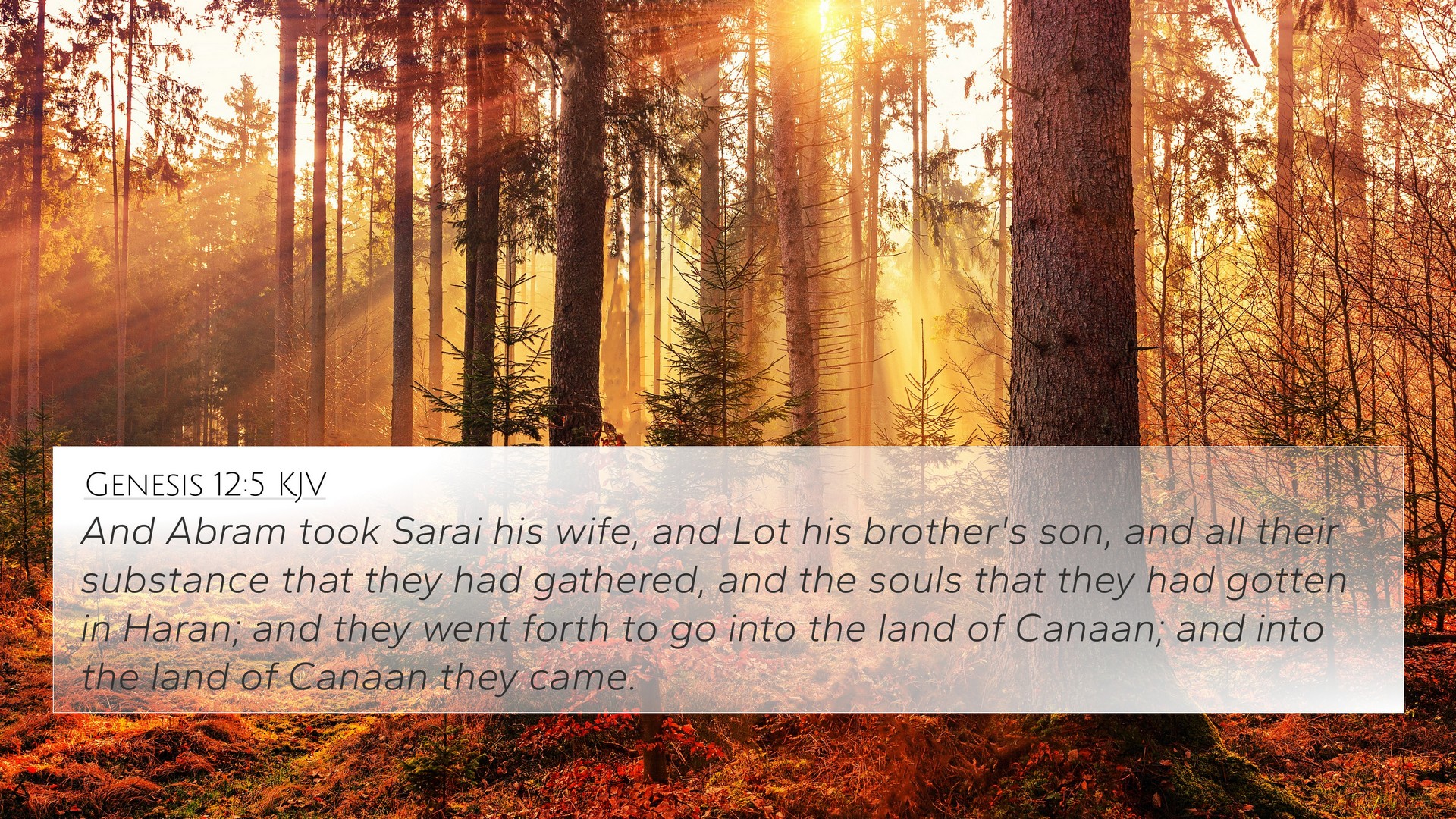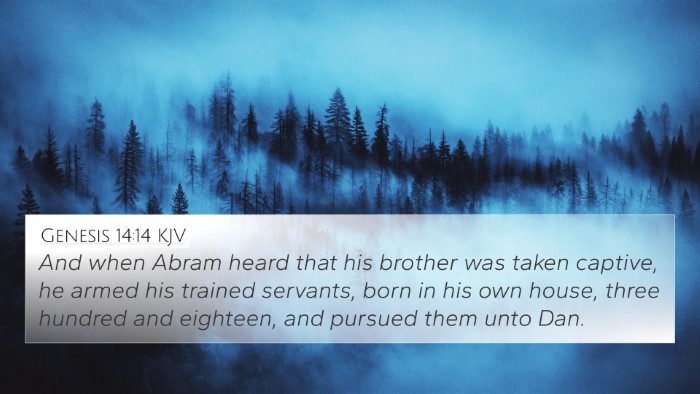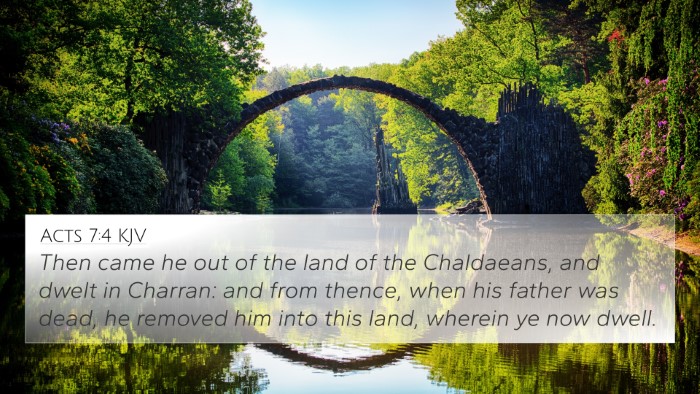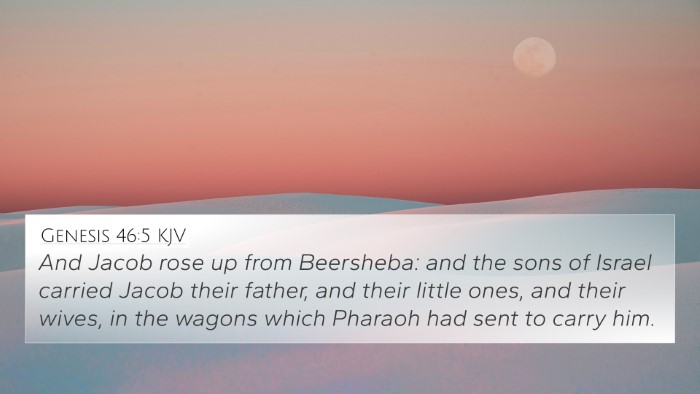Genesis 12:5 reads: "And Abram took Sarai his wife, and Lot his brother's son, and all their substance that they had gathered, and the souls that they had gotten in Haran; and they went forth to go into the land of Canaan; and into the land of Canaan they came."
This verse marks a significant moment in biblical history, as it introduces the calling of Abram (later known as Abraham) and the beginning of his journey into Canaan, which is often regarded as the Promised Land. Combining insights from various public domain commentaries, we can delve deeper into its meaning.
1. The Importance of Leaving Familiarity
Matthew Henry emphasizes the act of departure from familiar surroundings as an essential step in faith. Abram, guided by God's promise, leaves his homeland, illustrating the necessity of stepping out of one's comfort zone to embrace God's plans.
2. The Role of Family
Adam Clarke notes the presence of family in Abram's journey, highlighting that he did not embark alone but took along Sarai and Lot. This indicates the importance of family ties while pursuing a divine mission, showing how shared faith journeys can bind families together.
3. Gathering Substance and Souls
Albert Barnes addresses the phrase "all their substance that they had gathered" as indicative of Abram's previous success. The inclusion of "souls that they had gotten in Haran" refers to the servants and followers who came to faith, demonstrating how God's call does not just affect individuals but also entire households and communities.
4. Journey to the Promised Land
Commentators universally acknowledge the significance of Canaan as the Promised Land. This promise establishes a theme of faith and fulfillment throughout the Bible. Abraham's journey is not just physical but symbolic of the spiritual journey every believer is called to embark on—a journey towards God's promises.
5. Faith and Obedience
All three commentaries emphasize Abram's faith and obedience as vital themes. His decision to follow God's command, despite uncertainties, underscores the essence of faith in action. This obedience serves as a model for believers, encouraging them to trust in God's guidance.
Related Cross-references
- Hebrews 11:8: "By faith Abraham, when he was called to go out into a place which he should after receive for an inheritance, obeyed; and he went out, not knowing whither he went."
- Acts 7:3: "And said unto him, Get thee out of thy country, and from thy kindred, and come into the land which I shall show thee."
- Genesis 15:18: "In the same day the LORD made a covenant with Abram, saying, Unto thy seed have I given this land, from the river of Egypt unto the great river, the river Euphrates."
- Genesis 17:8: "And I will give unto thee, and to thy seed after thee, the land wherein thou art a stranger, all the land of Canaan, for an everlasting possession; and I will be their God."
- Genesis 13:14-15: "And the LORD said unto Abram, after that Lot was separated from him, Lift up now thine eyes, and look from the place where thou art northward, and southward, and eastward, and westward: For all the land which thou seest, to thee will I give it, and to thy seed forever."
- Romans 4:3: "For what saith the scripture? Abraham believed God, and it was counted unto him for righteousness."
- Galatians 3:29: "And if ye be Christ's, then are ye Abraham's seed, and heirs according to the promise."
Thematic Connections
The narrative of Genesis 12:5 is deepened through thematic connections with other scriptures. The linking of Abram's faith to the New Testament emphasizes how his journey is a precursor to the faith we inherit through Christ.
Conclusion: Inter-biblical Dialogue
In conclusion, Genesis 12:5 not only sets the stage for the story of Abraham but also establishes a framework for understanding faith, obedience, and the covenant between God and His people. The verse calls for a cross-referencing Bible study approach, linking themes, promises, and characters throughout the scriptures, creating a rich tapestry of biblical narrative and theology.









